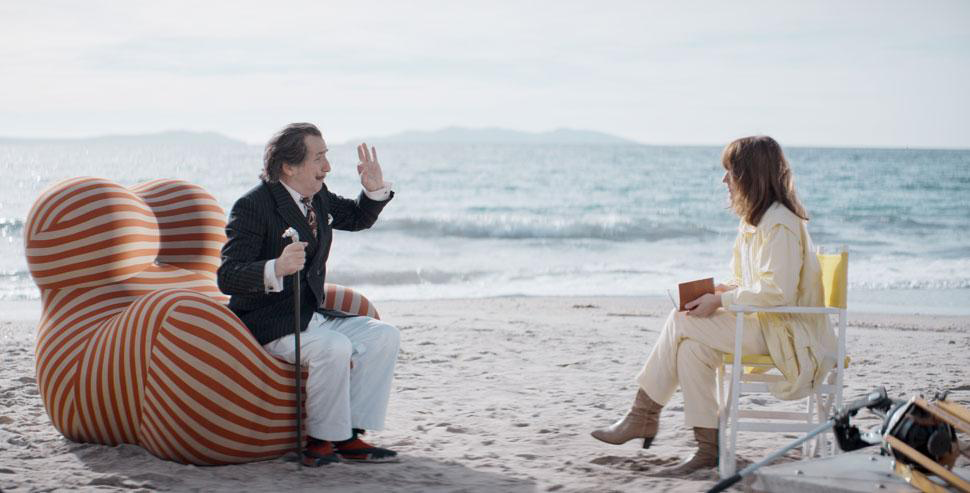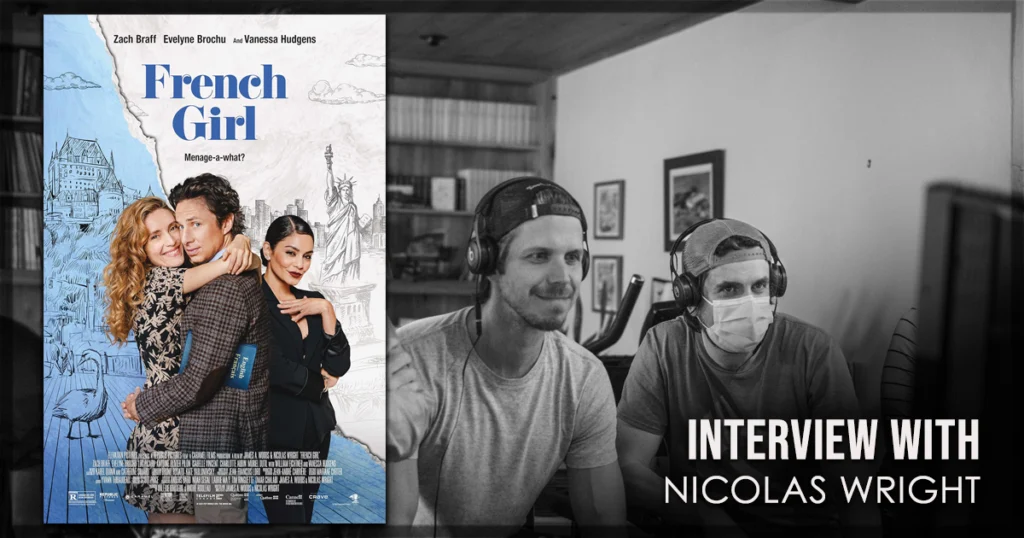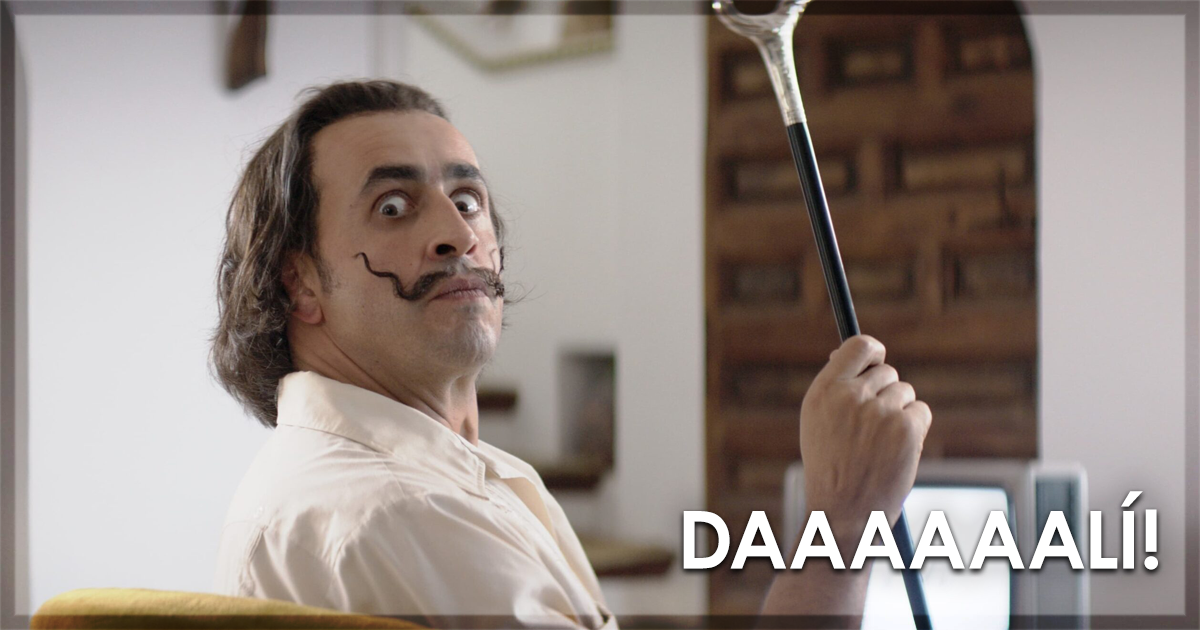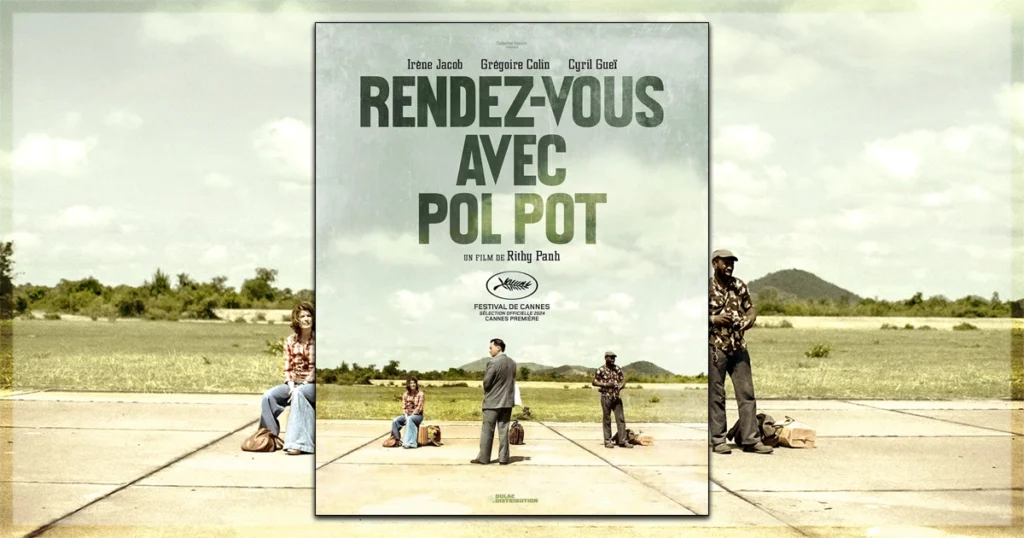No filmmaker is more unconcerned about the audience than Quentin Dupieux. His previous movie, Yannick, was an hour-long dark comedy that tiptoed around in circles as its titular character (played with pitch-perfect timing by Raphaël Quenard) turns a grating complaint about the play he’s watching into a total nightmare for both the actors and the audience. With his latest absurdist comedy, Daaaaaalí!, Dupieux takes his conceit to the extreme by attempting to paint a portrait of multifaceted surrealist artist Salvador Dali (played by Gilles Lelouche, Édouard Baer, Jonathan Cohen, Pio Marmaï and Didier Flamand) with a highly fragmented structure.
Daaaaaalí! isn’t actually about Dali
But it doesn’t take long before we realize the film isn’t actually about Dali or about anything really, but one elongated farce where the audience is the butt of the joke as Dupieux tests their patience for 79 tedious minutes inside a cyclical surrealist fantasy that goes nowhere. Literally nowhere. The bulk of the movie is one very long, very far-fetched joke in which a Priest (Éric Naggar) tells Dali about a dream he had that could inspire one of his paintings. Dreams (and dreams within dreams) are, of course, at the heart of Dali’s oeuvre, but none quite like the one Dupieux presents here.
In fact, he utilizes dreams to see if the audience gauges where he’s going, which is, once again, nowhere. Because the ‘dream’ the Priest has is a dream within a dream, revealing (at some very long point in time) that when he ‘awoke,’ it was also a part of his dream…until thirty or so minutes pass and we find out that, heh, it’s a dream within a dream within a dream. He’s fooled us again, and yet the story itself is incredibly simple: a journalist (played impeccably by Anaïs Demoustier, one of Dupieux’s frequent collaborators) wants to profile Dali, but he refuses because no camera is present in the hotel room.
In that particular scene, Dupieux immediately plays with time and space, stretching the hotel corridor to near interminable heights, as he walks, and walks, and walks to reach her, only for him to leave in a nanosecond after realizing no cameras are here. The ruptures in time are evident, and this entire movie should be taken in the third degree because the whole thing is likely a fabric of her imagination, or perhaps Dali’s. It’s never clear, but it’s also part of the fascination with embarking on a Dupieux picture. He never lays out what he wants to say to the audience, but it seems he doesn’t want to say much, either on Dali, on his legacy, or the relationship between media and Dali (if you want a more didactic portrait of the artist, Mary Harron released Daliland last year, which isn’t very good but takes its material seriously).
He’d rather create this large dream within a dream where multiple actors play the same character, which never feels distracting, jarring, or off-putting. Rather, each player who portrays Dali communicates with one another, and Dupieux’s sharp cuts (he acts as his own editor, as always, as an act of self-censorship…his words, not mine) naturally weave in from one player to the next, as if the same person is playing Dali. Pio Marmaï is as far off as Gilles Lellouche, and even Cohen’s portrayal doesn’t match what everyone else is doing. But does it matter? Dupieux doesn’t think so, and neither will we, as we quickly get enraptured by his dissociation of continuity and constant, neverending jabs at the audience’s expense.

It takes guts to tell the audience off for most of the runtime, telling them that this fictionalized story on Salvador Dali won’t amount to much, whether from the point of view of the journalist (and her producer, played by Romain Duris) or from the multiple façades of Salvador Dali. An inexperienced filmmaker doing this would likely frustrate the audience. Still, the ones who know Dupieux’s style are fully on board with the idea of Mr. Oizo flipping them off again, continuously questioning the veracity of what they’re watching or if this is just a giant dream within a dream.
Daaaaaalí! is at odds with itself
It gets confounding, perhaps too much, but nothing about this movie isn’t inherently sincere. If it means anything, it’s probably a more accurate portrait of Dali than Daliland ever was, without ever taking itself seriously and telling nothing of interest about the man in 79 very long, excruciatingly painful minutes. It’s always at odds with itself, never knowing what it wants to say or what the audience should get out of this weird, incomplete cinematic experience that would instead bug them to the point that they would want to angrily storm out of the cinema, having realized they wasted an hour and nineteen minutes of their life they will never get back.
It doesn’t seem like a lot, but Dupieux will make it look like it’s a whole lot. But since I’m totally on his wavelength and love movies that have very little meaning and constantly tell us to bugger off, I loved it. What does that say about me? If I had a camera and the resources Dupieux has, I’d do the exact same thing and wouldn’t feel remorseful about it, either.
Daaaaaalí! has screened at a number of film festivals. It is available to watch in a limited number of theaters.
Learn more about the movie at the Music Box Films website.
You might also like…
‘Meeting with Pol Pot’ Film Review: A Keen Reminder of Moral Courage
‘The Ministry of Ungentlemanly Warfare’ Review: Guy Ritchie’s Exhilarating James Bond Audition Tape




